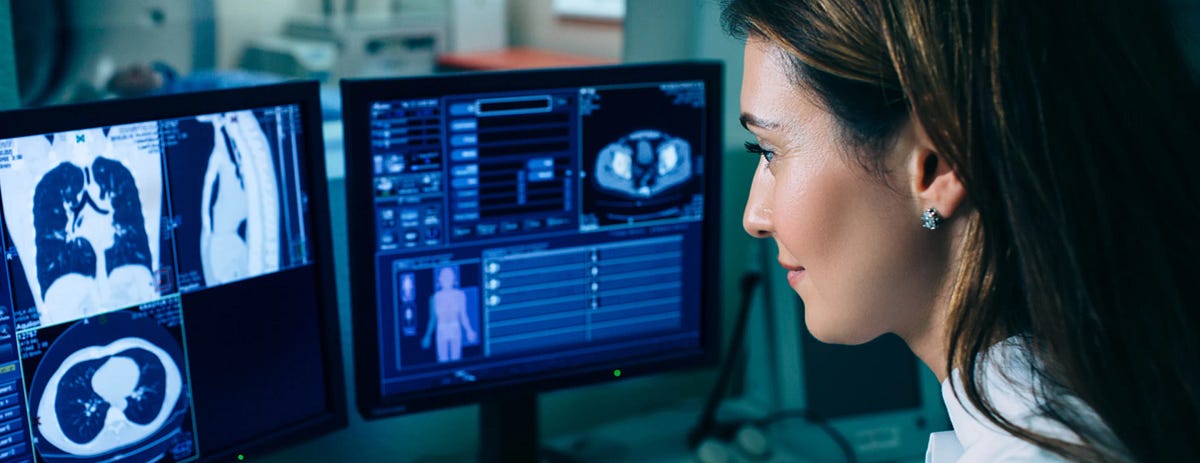Medium
1w
119

Image Credit: Medium
AI in Health Care: Lung Cancer Prediction using Deep Learning.
- The use of deep learning in detecting and predicting lung cancer can revolutionize the way the disease is diagnosed and results in improved patient outcomes. The project discussed in this article utilizes deep learning for lung detection based on chest-scanned images.
- The dataset used for the project is publicly available and contains images in PNG format. It includes three types of chest cancer - adenocarcinoma, large cell carcinoma, and squamous cell carcinoma, along with a normal cell folder. The dataset is split into training, testing, and validation sets.
- The convolutional neural network (CNN) used in the model applies filters to the images and finds features. The model was built using TensorFlow and Keras and after 30 epochs, had a training accuracy of 0.99 and a validation accuracy of 0.88. However, the model was overfitting, which could be addressed by data augmentation and adjusting parameters such as the learning rate and batch size.
- The classification report was used to evaluate the performance of the model for each class - adenocarcinoma, large cell carcinoma, squamous cell carcinoma, and normal. The precision, recall, support, and F1-score of the model for each class were explained in detail. The overall accuracy of the model was 0.61, which might be due to the small dataset size and an imbalanced dataset.
- The project also included creating a Streamlit web app for testing the model with input images and displaying the predicted output. The code for creating the user interface and running the web app on a local computer is available on the author's GitHub repository.
- The use of deep learning in lung cancer prediction can greatly increase the efficiency and accuracy of diagnosis. However, larger datasets and improvements to the model are necessary to generalize the model to new and unseen data.
- The project could be extended to include other types of cancer detection and prediction, which could have a significant positive impact on healthcare.
- The author provided their email and LinkedIn for readers to reach out for more information about the project.
- Overall, the project demonstrated the potential of deep learning and CNNs in lung cancer detection and provided insights into evaluating the performance of the model and creating a user interface for testing the model.
- The use of deep learning and other AI techniques in healthcare can contribute to the development of more efficient and accurate diagnosis and treatments, leading to improved patient outcomes and a better quality of life.
Read Full Article
7 Likes
For uninterrupted reading, download the app